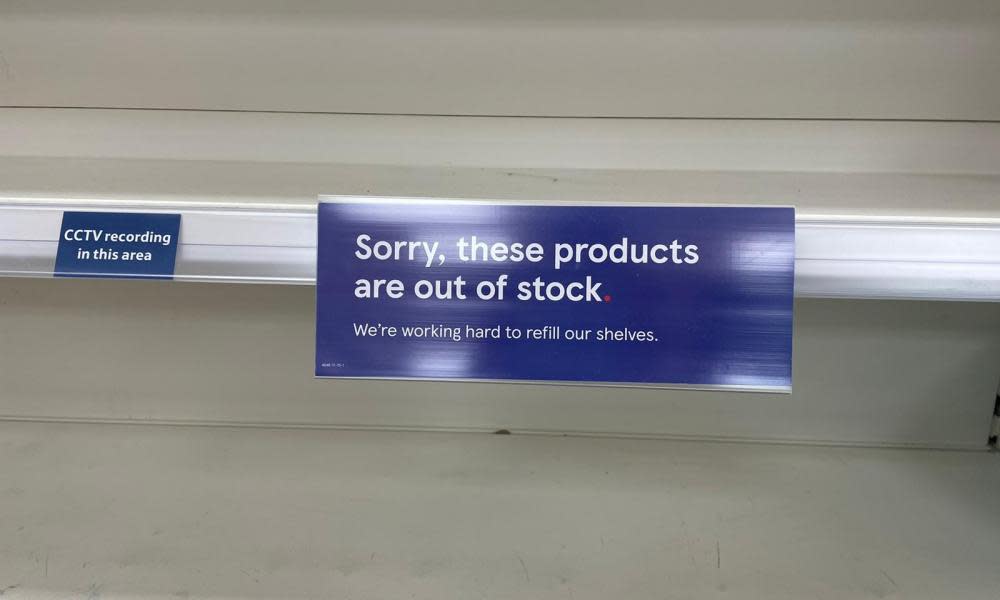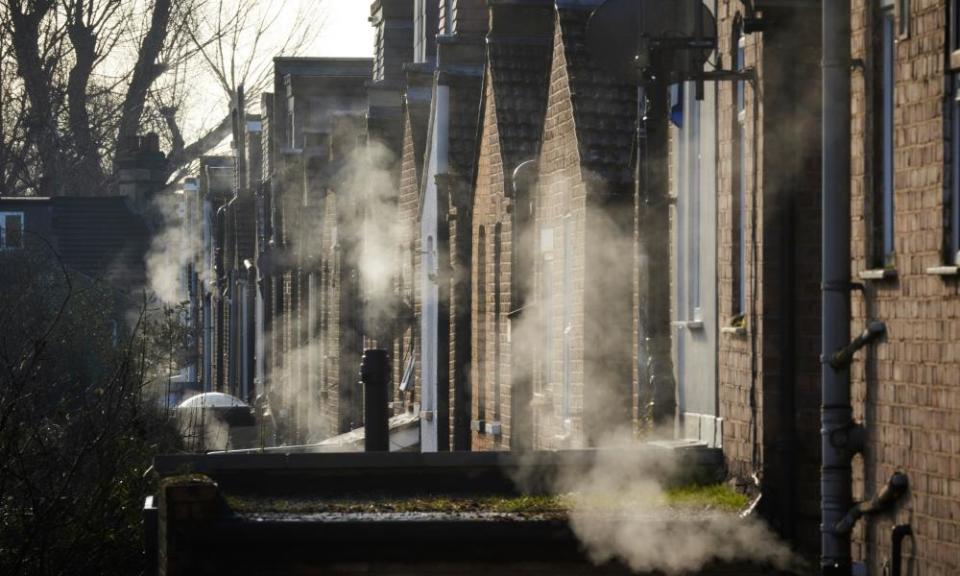Gas crisis, Covid and food shortages: Tories fear perfect winter storm

A second winter of discontent could lie ahead, senior Tories fear, with people’s personal finances pushed to breaking point, the health service at risk of being overwhelmed and the threat of Covid restrictions returning.
Energy price rises
The UK’s gas prices have quadrupled over the last year to reach record levels well above those in neighbouring countries, and are expected to remain elevated through the colder months. These have also raised the cost of carbon dioxide, which is in short supply because the factories producing it for the food industry have been forced to run for fewer hours to cut their energy costs. The rise in the price of gas has already seen several companies go bust, as they cannot pass on the increase completely to customers because of the energy price cap, which is not due to be reviewed until next spring.

For now, consumers should be partly protected from spiralling costs, but people whose energy firms go under will be put on a tariff of last resort by Ofgem at another supplier, and so may end up paying far higher bills than they were before. Carbon dioxide shortages also have significant knock-on consequences: the gas is used to make dry ice to keep food fresh for transportation, to cool nuclear reactors, and to stun poultry before slaughter. Ministers have had to bail out a firm that stopped production of CO2 – but the deal only lasts for three weeks.
Lack of food and fuel

Ministers are confident that the carbon dioxide shortage is temporary. However, there are other serious problems that could threaten food and fuel supplies. A deficit of 90,000 lorry drivers who deliver these goods has plagued the UK for months, and been made worse by new post-Brexit immigration rules. The government has been divided over what to do next. Any moves to recruit more drivers will take time, leading supermarkets to voice concerns privately to the government that their shelves could be emptier than usual come Christmas. BP has also said some forecourts will close, and 100 were short of at least one grade of fuel, while Esso said a handful of its petrol stations operating alongside Tesco Express stores were affected. Queues were seen forming outside petrol stations in some parts of the country, and ministers are concerned about mass panic buying like that seen at the start of the first lockdown.
Covid restrictions – and the new variant threat

Although Johnson is known to be strongly against another lockdown, he has not ruled out a return to some of the tougher restrictions seen last winter. The government is acutely aware of how low its popularity sank in the run-up to Christmas 2020, when tens of millions of people were promised they would get to see family and friends but then had their plans axed with only a few days’ notice – before the “stay at home” message returned in England for a third time.
While the vaccine has boosted hopes that measures such as social distancing and mask wearing will not be needed again, they are being held in reserve in case the situation deteriorates. A long-awaited decision to offer jabs to children aged 12-15 has finally been announced, and top-up shots being rolled out to the over-50s and clinically vulnerable, but still just over 10% of those eligible that have not had a first vaccine. And if a new variant emerges that is resistant to current vaccines, or immunity wanes significantly in those already fully inoculated, there will be real trouble.
NHS backlog
Although politicians are at pains to say the pandemic is not over, there are big concerns within the government about people not coming forward for other treatment and check-ups, meaning thousands of cancer diagnoses are being missed and non-urgent operations are being pushed further back. Ministers have vowed to raise around £12bn to try to speed up the pace at which the backlog is worked through (in addition to funding social care changes not due to kick in until 2023), but they are wary about the pressure the NHS will be under due to a combination of Covid and a particularly bad flu season.
Universal credit cut – and looming tax rise
Beginning in October, millions of universal credit claimants will see the disappearance of the £20 uplift that has kept many of them afloat during the pandemic. In a bid to head off an outcry, the Department for Work and Pensions has asked the Treasury to let working people who receive the benefit keep more of their earnings. This would involve reducing the “taper rate” from 63p to 60p, which could cost the government around £1bn a year. If the chancellor, Rishi Sunak, agrees, the measure could be announced in next month’s budget. Further down the track, the 1.25-percentage point increase in national insurance contributions both for workers and businesses will come into force from April 2022 – the so-called “health and social care levy”. This is only likely to ramp up pressure on low-income households’ personal finances.

 Yahoo Movies
Yahoo Movies 
